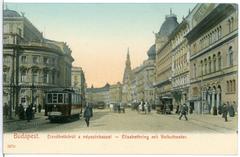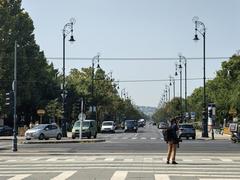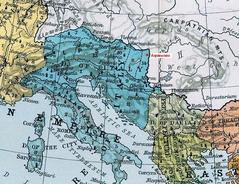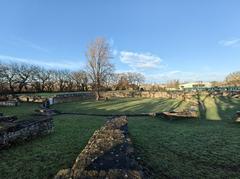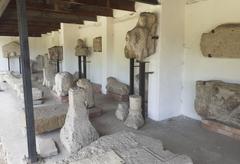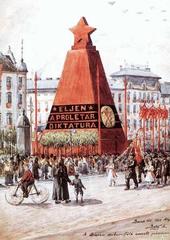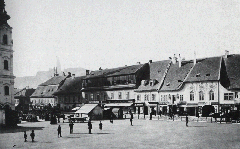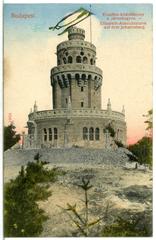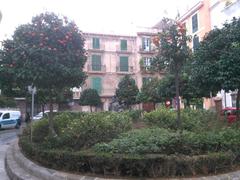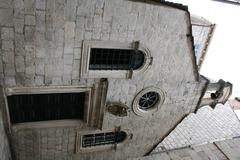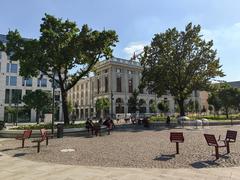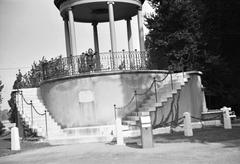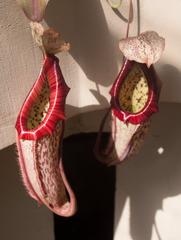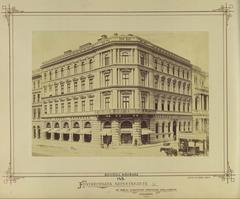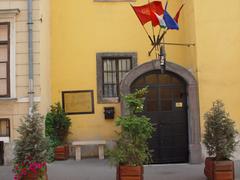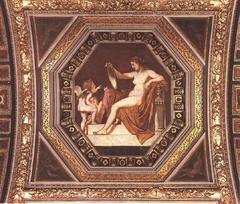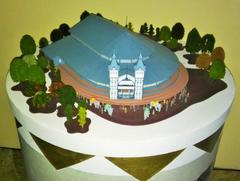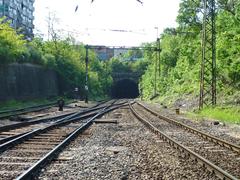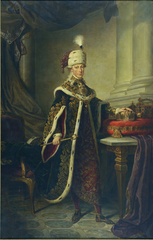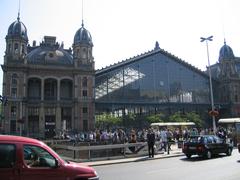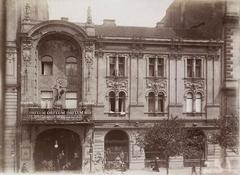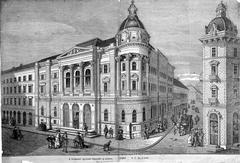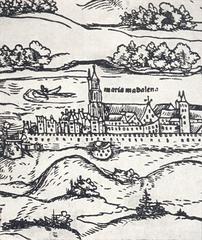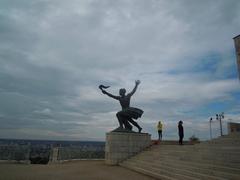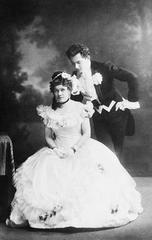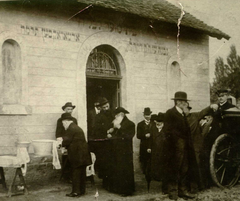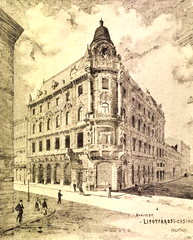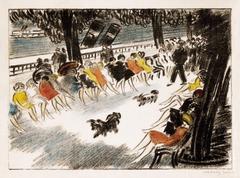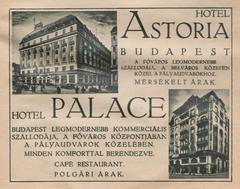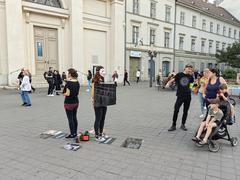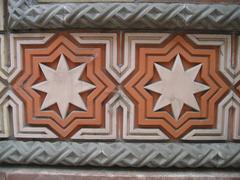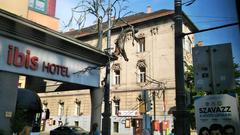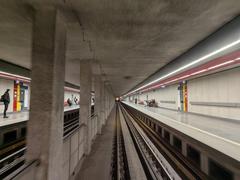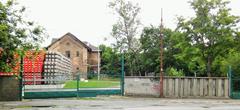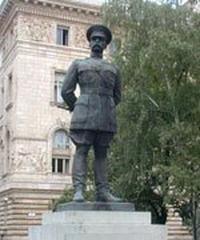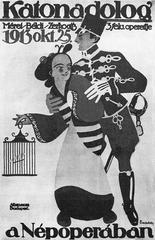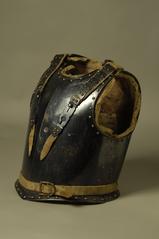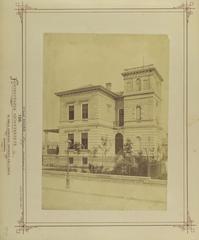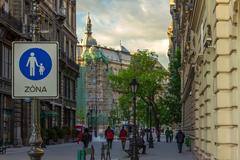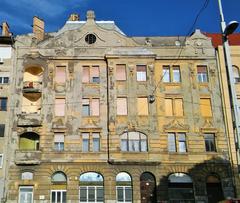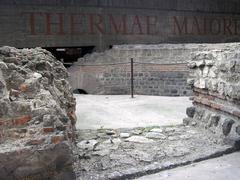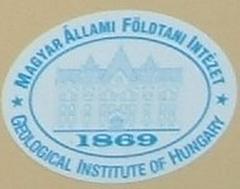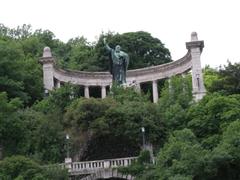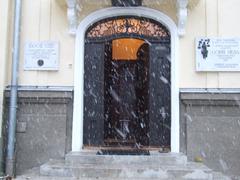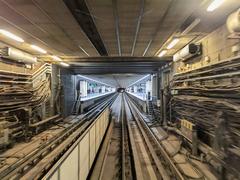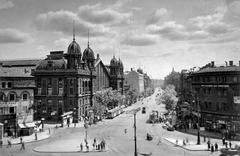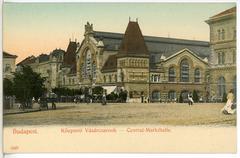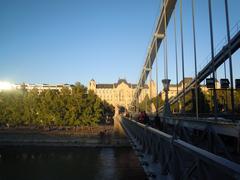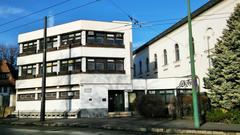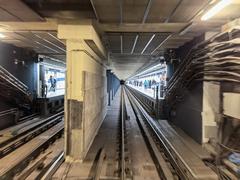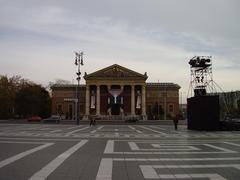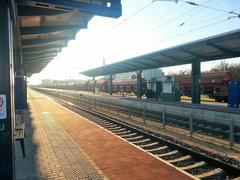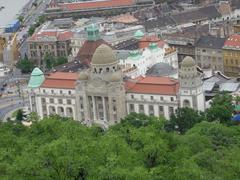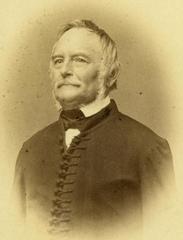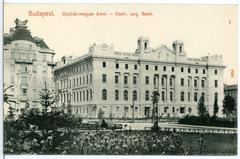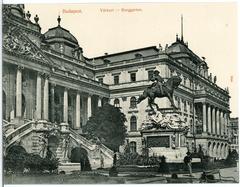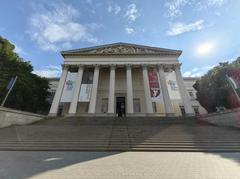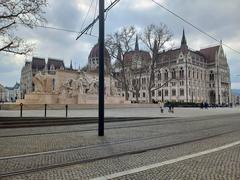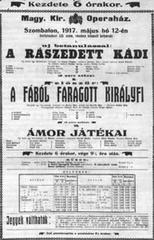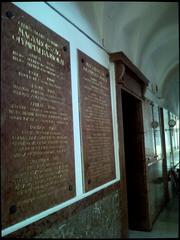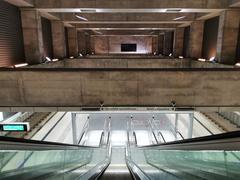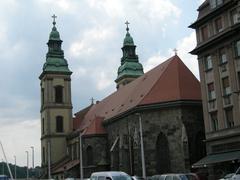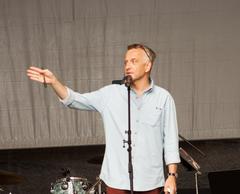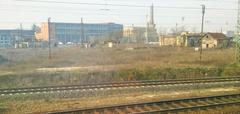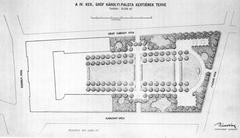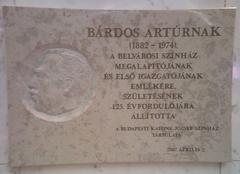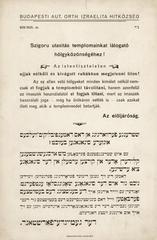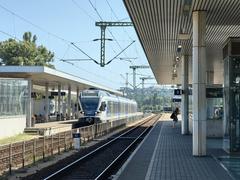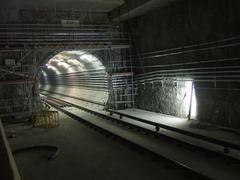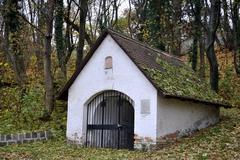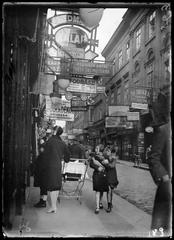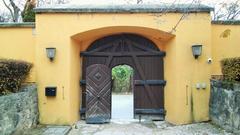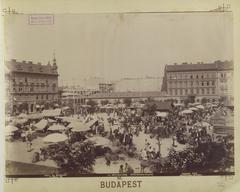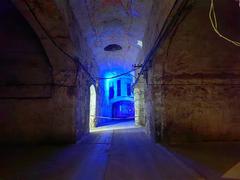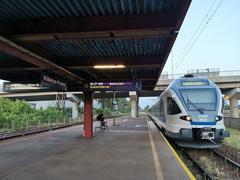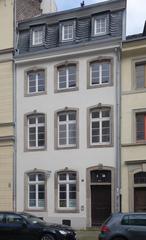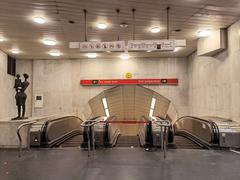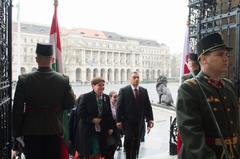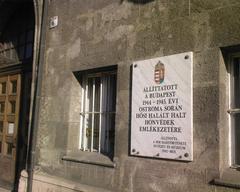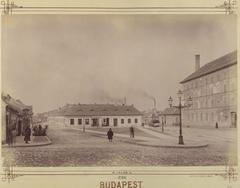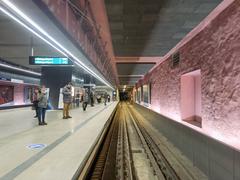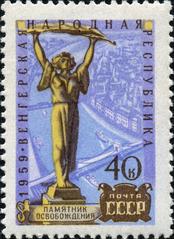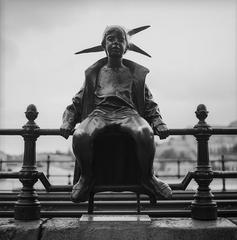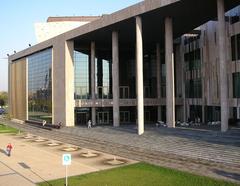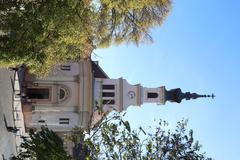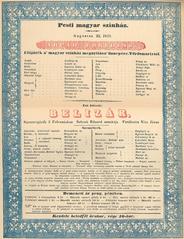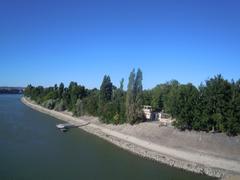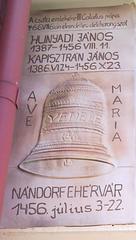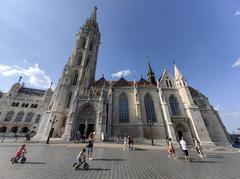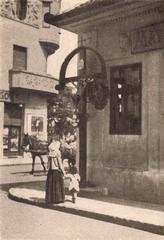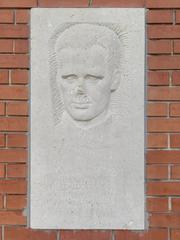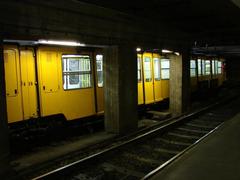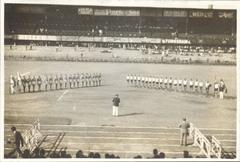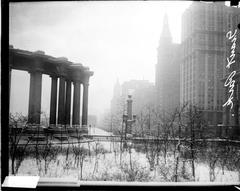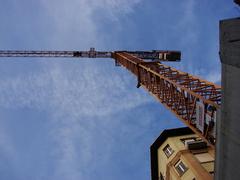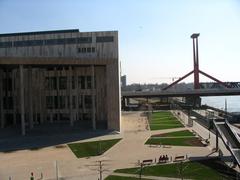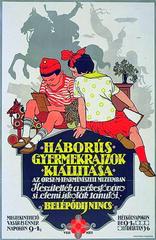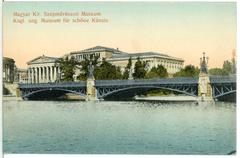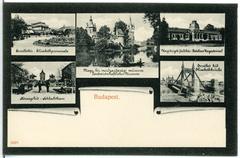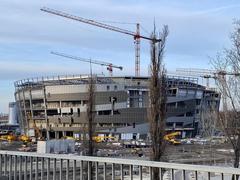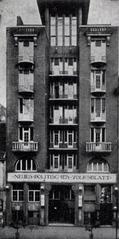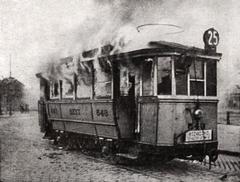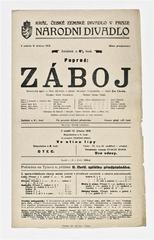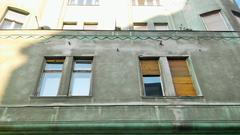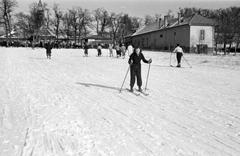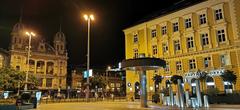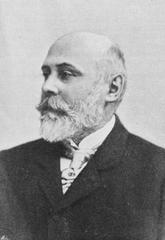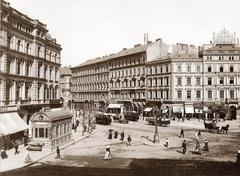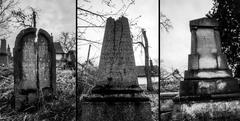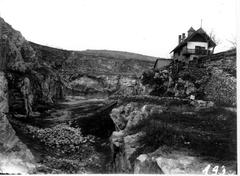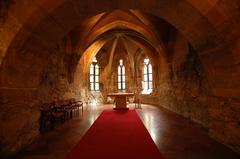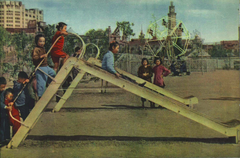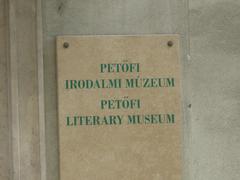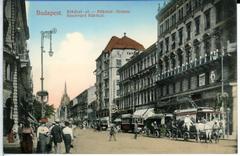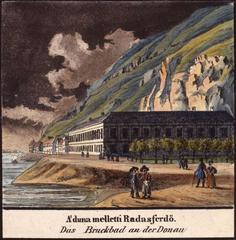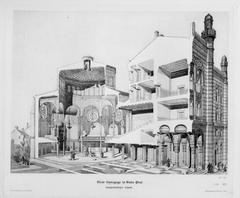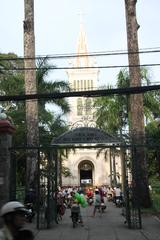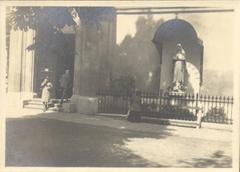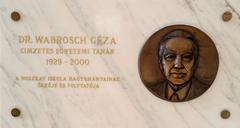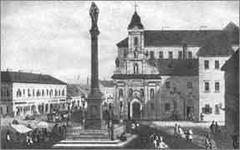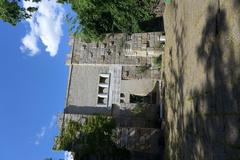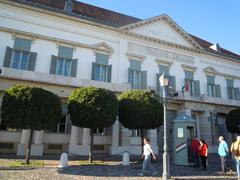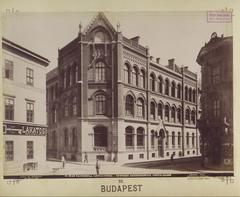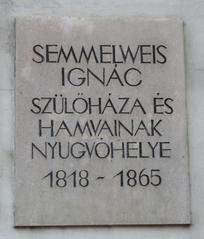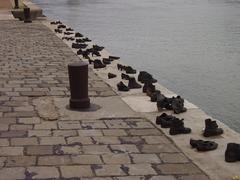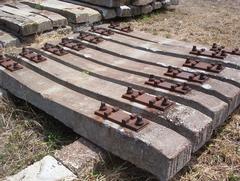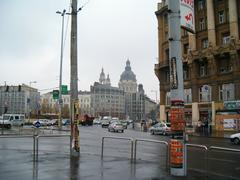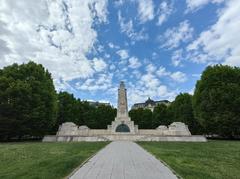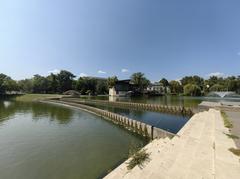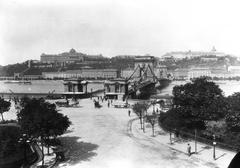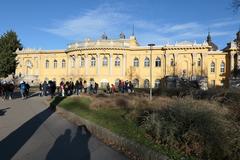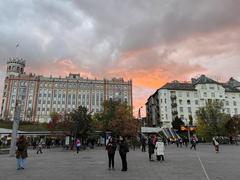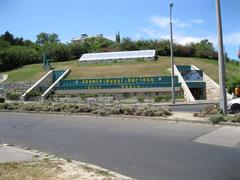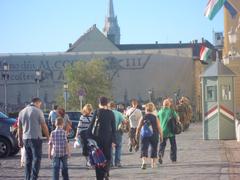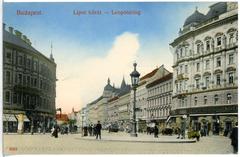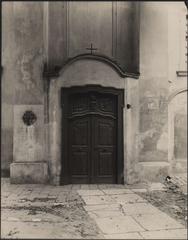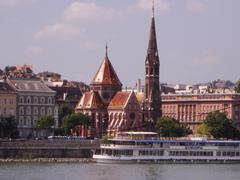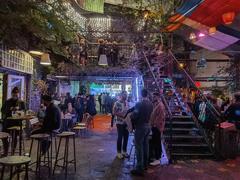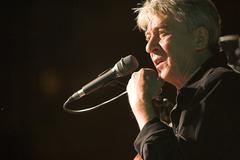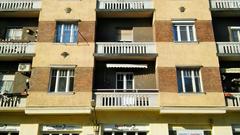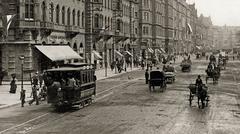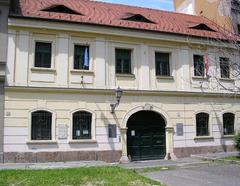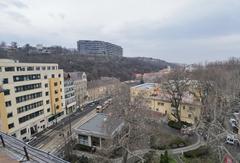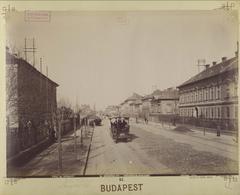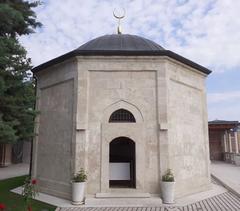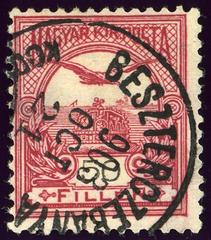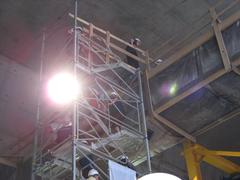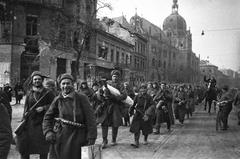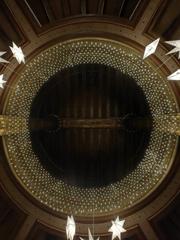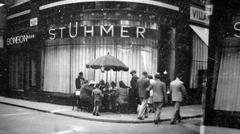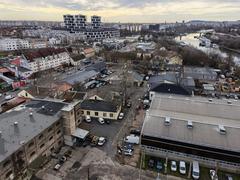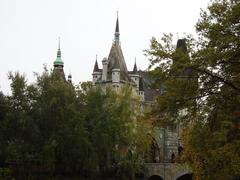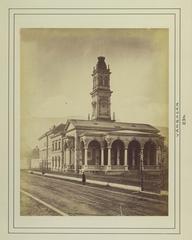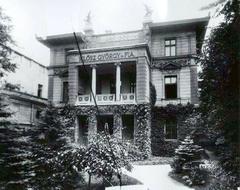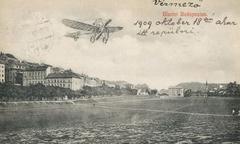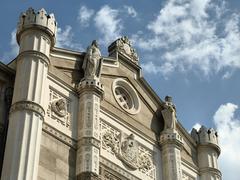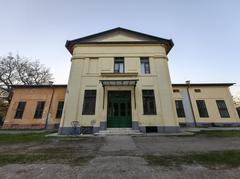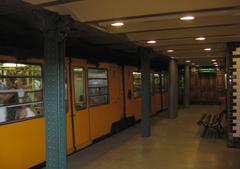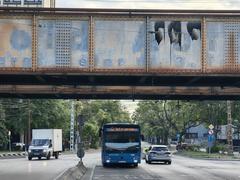Apostolic Nunciature to Hungary: Budapest Visiting Hours, Tickets, and Historical Significance
Date: 04/07/2025
Introduction
The Apostolic Nunciature to Hungary in Budapest is a distinguished symbol of ecclesiastical diplomacy and cultural heritage. As the official diplomatic mission of the Holy See, it not only manages relations between the Vatican and Hungary but also supports the local Catholic Church. Although not accessible to the general public as a tourist attraction, the Nunciature’s influence extends deeply into Hungary’s religious, historical, and diplomatic fabric. This comprehensive guide delves into its origins, roles, visitor protocols, and the significance it holds in Budapest’s rich tapestry of history and culture.
For those seeking further details or planning a visit to Budapest’s religious and historical sites, this article also highlights practical information, nearby attractions, and authoritative resources.
Table of Contents
- Introduction
- Historical Overview and Establishment
- Diplomatic and Ecclesiastical Functions
- Key Historical Milestones
- Architectural Context and Location
- Visiting Information: Access, Hours, and Policies
- Notable Apostolic Nuncios
- The Nunciature’s Contemporary Role
- Significance for Visitors and Researchers
- Nearby Attractions in Budapest
- Practical Travel Tips
- Frequently Asked Questions (FAQ)
- Conclusion
- References & Further Reading
Historical Overview and Establishment
The Apostolic Nunciature to Hungary traces its roots to the early 20th century, established in the wake of World War I as part of the Vatican’s efforts to restore diplomatic relations with Hungary. This move was particularly significant following the Treaty of Trianon, which dramatically altered Hungary’s borders and political landscape. During the interwar period (1920–1939), the Nunciature played an active role in navigating the relationship between the Catholic Church and the Hungarian state.
The communist era interrupted this diplomatic presence, severely restricting the Nunciature’s activities until relations were officially restored in 1990 after the fall of communism. This post-1990 revival marked a renewed commitment by the Holy See to support the re-emergence of the Catholic Church and to foster religious freedom in Hungary.
Diplomatic and Ecclesiastical Functions
The Apostolic Nunciature serves dual roles:
- Diplomatic: As the Vatican’s embassy, it represents the Holy See to the Hungarian government and is often led by the dean of the diplomatic corps in Hungary.
- Ecclesiastical: The Nuncio, who holds the rank of titular archbishop, is responsible for facilitating communication between the Vatican and the Hungarian Catholic Church, overseeing the appointment of bishops, and supporting the church’s mission.
Unlike secular embassies, the Nunciature does not handle consular services such as visa issuance. Its diplomatic activities focus on moral and humanitarian concerns, religious freedom, and advocacy for human rights (Omnes Magazine).
Key Historical Milestones
- Interwar Period (1920–1939): The Nunciature was instrumental in managing complex church-state relations and supporting Catholic interests amid political changes.
- Communist Era: Diplomatic relations were suspended, with the Nunciature’s activities largely frozen.
- Post-Communist Revival (1990–Present): The Nunciature has played a vital role in restoring church property, supporting religious education, and organizing papal visits. Its humanitarian engagement has included supporting refugees and advocating for minority rights (Omnes Magazine).
Architectural Context and Location
The Nunciature is located at Veres Pálné utca 25, 1053 Budapest, in the city’s historic 5th district (Belváros-Lipótváros). The building exemplifies late 19th and early 20th-century Budapest architecture, featuring:
- Symmetrical window arrangements and ornate cornices
- Neo-classical and eclectic design elements
- Papal symbols and Vatican flags displayed during official events
The building houses private reception halls, a chapel, the Nuncio’s residence, and offices. While not open to the public, its dignified presence contributes to the city’s architectural and diplomatic landscape.
Visiting Information: Access, Hours, and Policies
- Public Access: The Nunciature is a diplomatic mission and does not offer public tours or regular visiting hours. Entry is limited to official appointments or invitations for specific events.
- Tickets: There is no ticketing system, as it is not a museum or tourist site.
- Events: On rare occasions, such as papal visits or special religious celebrations, the Nunciature may host public Masses or receptions. Information about such events is typically announced through official Vatican or Hungarian Catholic channels.
- Research Access: Scholars may request access to historical archives through institutions such as the Institútum Fraknói. Advance arrangements and permissions are required.
For the most current information, consult the Vatican diplomatic directory and Budapest Tourist Info.
Notable Apostolic Nuncios
As of July 2025, Archbishop Michael Wallace Banach serves as the Apostolic Nuncio to Hungary. Appointed in 2022, he brings significant diplomatic experience and has been recognized for his contributions to humanitarian and ecclesiastical initiatives.
The Nunciature’s Contemporary Role
Today, the Apostolic Nunciature remains the Vatican’s principal diplomatic representation in Hungary, advocating for religious liberty, supporting the Catholic Church’s mission, and collaborating with charitable organizations. The Nunciature is also active in fostering interfaith dialogue and supporting humanitarian efforts, particularly during times of crisis (Omnes Magazine).
Significance for Visitors and Researchers
While the Nunciature itself is inaccessible to casual tourists, it is of considerable interest to those studying church history, diplomacy, or Budapest’s cultural heritage. Researchers should coordinate with local archives for access to historical documents. Its location also places it near many of Budapest’s most significant religious and historical sites.
Nearby Attractions in Budapest
Visitors to the area can explore a wealth of historical and cultural landmarks, including:
- St. Stephen’s Basilica: Home to Hungary’s most revered relic and a hub for concerts and Mass (Budapest Travel Tips).
- Hungarian Parliament Building: A neo-Gothic masterpiece with guided tours.
- Great Synagogue and Jewish Quarter: Europe’s largest synagogue and historical Jewish sites.
- Buda Castle and Fisherman’s Bastion: Medieval history and panoramic city views.
- Shoes on the Danube Bank: A moving Holocaust memorial.
- Margaret Island: A scenic retreat with gardens and ruins.
- Hungarian National Museum: Extensive exhibits on national history and culture.
Practical Travel Tips
- Currency: Use Hungarian Forint (HUF). Euros are accepted in some locations.
- Transport: Utilize Budapest’s efficient metro, trams, and buses; consider a 24-hour travel card.
- Safety: Budapest is generally safe; remain vigilant in crowded areas.
- Tipping: 10–15% is standard in restaurants unless a service charge is included.
- Water: Tap water is safe; bottled water is widely available.
Frequently Asked Questions (FAQ)
Q: Can I visit the Apostolic Nunciature to Hungary?
A: No, it is not open to the public and has no visiting hours or ticket sales.
Q: How can researchers access the Nunciature’s archives?
A: Through specialized institutions like the Institútum Fraknói, with prior arrangements.
Q: Where is the Nunciature located?
A: Veres Pálné utca 25, 1053 Budapest, in the central 5th district.
Q: Are there public events at the Nunciature?
A: Occasionally, for special occasions; announcements are made via official Catholic channels.
Q: Does the Nunciature provide consular services?
A: No, its focus is diplomatic and ecclesiastical, not consular.
Conclusion
The Apostolic Nunciature to Hungary stands as a testament to the enduring relationship between the Holy See and Hungary. Its diplomatic and religious leadership has shaped Hungary’s modern history and continues to influence the country’s spiritual and cultural landscape. Although not open for public tours, its presence enhances Budapest’s status as a center of religious and diplomatic heritage. Visitors and scholars alike are encouraged to explore the surrounding historical sites and stay informed via official channels for any special events or research opportunities.
For up-to-date information on Budapest’s religious and historical attractions, download the Audiala app or visit our recommended resources.
References & Further Reading
- Apostolic Nunciature to Hungary: History, Role, and Visitor Information in Budapest, 2025
- Visiting the Apostolic Nunciature to Hungary: Location, Architecture, and Visitor Information, 2025
- Apostolic Nunciature Budapest Visiting Hours and Cultural Significance: A Guide for Visitors, 2025
- A Complete Visitor’s Guide to the Apostolic Nunciature to Hungary: Visiting Hours, Tickets, and Nearby Budapest Historical Sites, 2025
- Vatican diplomatic directory, 2025
- GCatholic.org – Apostolic Nunciature to Hungary, 2025
- Budapest Tourist Info, 2025
- Omnes Magazine – Nuncio Apostolic Diplomacy, 2025
- Vatican News – Pope’s upcoming itinerary in Budapest, 2021
Internal Links:
- Explore more about Budapest Historical Sites
- Learn about the Vatican’s Diplomatic Missions
